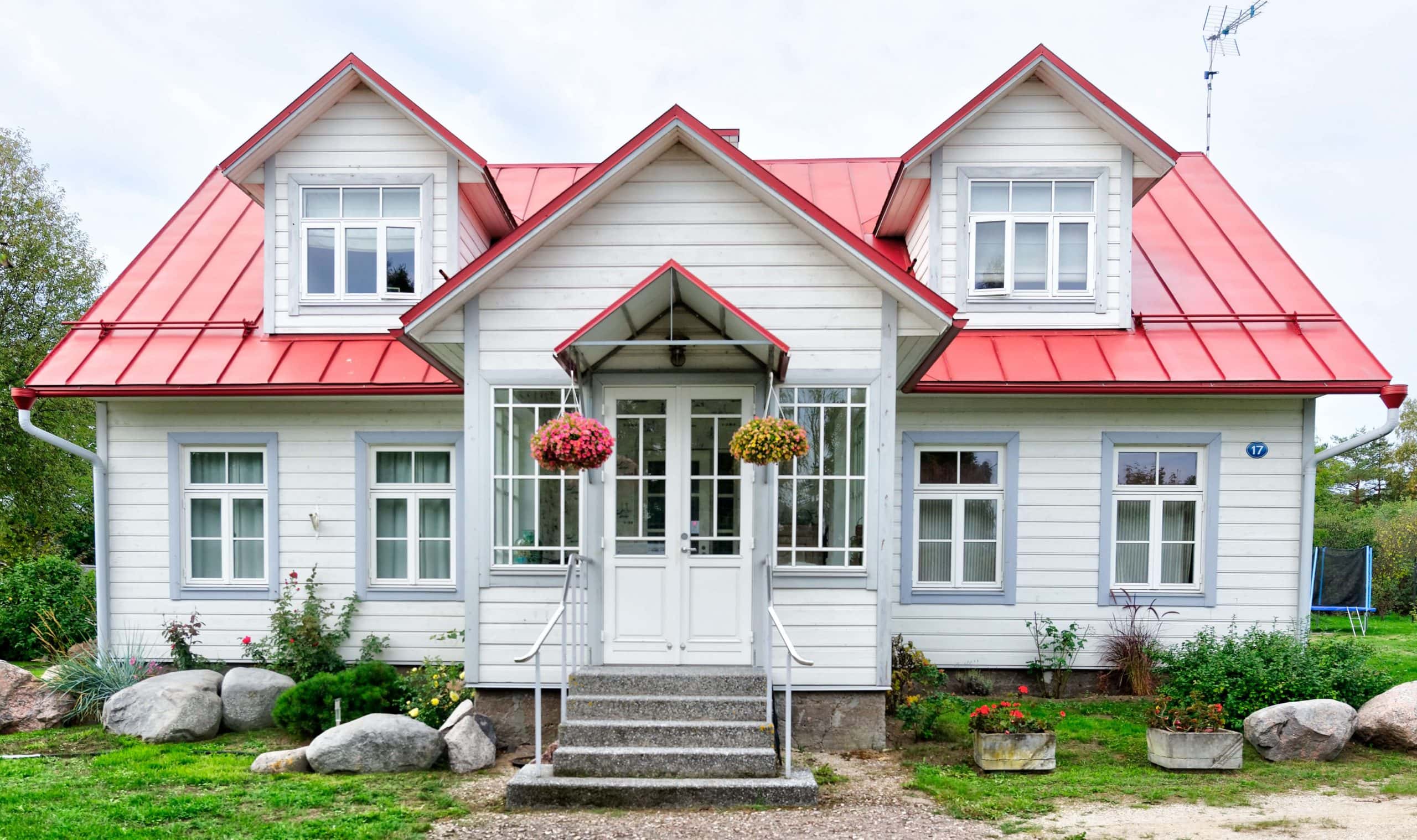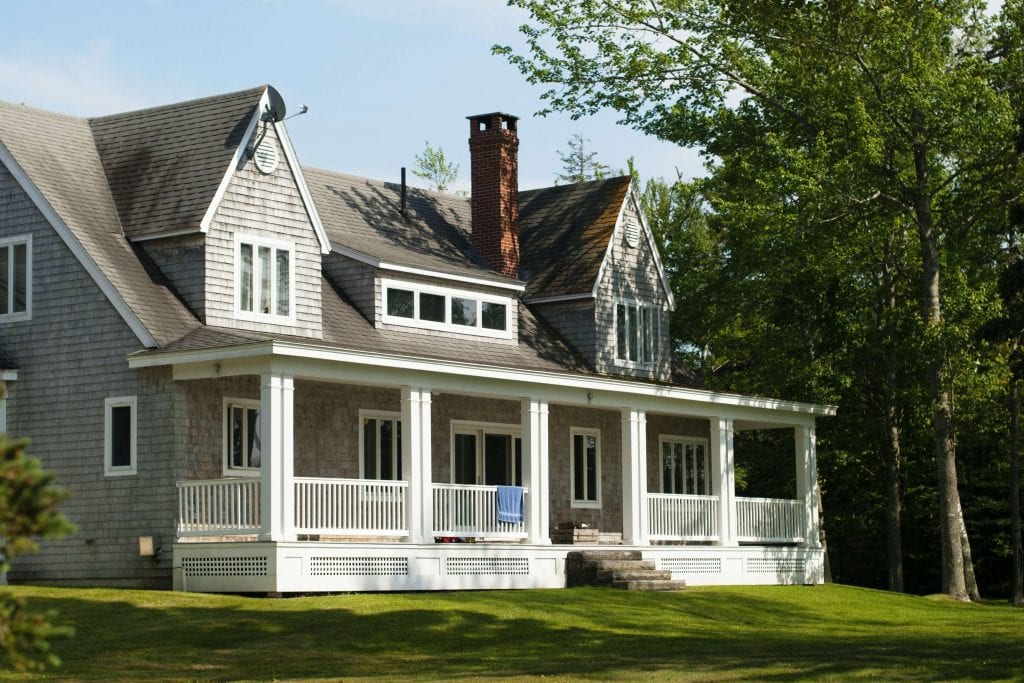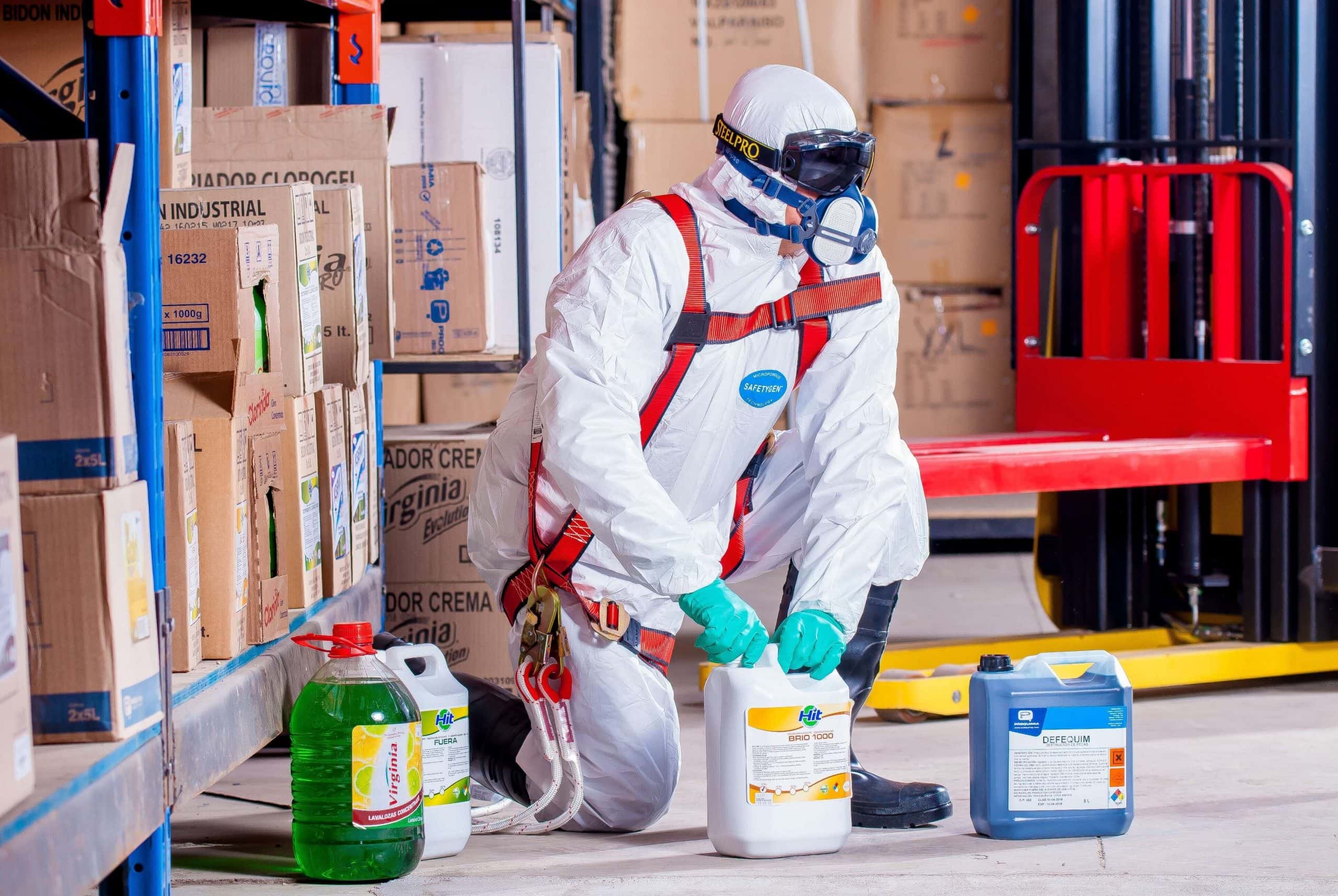Home maintenance can seem like an insurmountable obstacle to a new homeowner who has never even seen a boiler, let alone drained one. The same is true for those who have recently purchased a home. You can choose to not let it consume you. A home, like a living thing, responds to the changing of the seasons by coming to life in the spring and going to sleep in the fall and winter.
Your home will run like a well-oiled machine if you maintain this seasonal routine year-round and pay close attention to the smallest of details.
Real estate investment comes with its own unique set of challenges and complications. This is why many property owners work with a management company that screens tenants, collects rent, and schedules regular maintenance.
Although they share some similarities, property management and the upkeep of rental properties are actually distinct activities. Most locals are confused about the differences between all the different kinds of home upkeep. Tenants are usually only made aware of residential property maintenance services through emergency repair requests.
Managers of commercial real estate, however, should give serious thought to the routine, corrective, and emergency maintenance tasks that will need to be completed.
Think about whether you want your own employees to handle maintenance or whether you want to bring in outside experts. These separate entities work together to ensure that your property is managed smoothly and professionally. Come along as we break down the differences between property management and regular home maintenance for a rental property.
At HP Constructions, we have the best home constructions selection to make your house a dream come true.
FAQs About House Maintenance
Like a regular health check-up, a home maintenance schedule is important for every house's upkeep. Continuing to check on your exterior, appliances, heating and cooling, plumbing, security, and electrical systems will help prevent breakdowns, save money, and keep your home looking its best.
Maintenance tasks indicate which action—or set of actions—a maintenance technician is supposed to perform to complete a work order. Different maintenance tasks are assigned based on the type of equipment that needs maintained.
Preventive maintenance is the act of performing regularly scheduled maintenance activities to help prevent unexpected failures in the future. Put simply, it's about fixing things before they break.
Facility maintenance encompasses all maintenance activities that are taken in and outside of commercial buildings to keep the area safe, presentable, and most importantly, functional. It is often used interchangeably with the term building maintenance.
Preventive maintenance is probably the most popular maintenance management strategy…at least it gets the most buzz in the industry. When the quality of production is impacted due to unreliable equipment and costs skyrocket because of unplanned servicing, it's probably time to consider a preventive maintenance program.
What is house maintenance?
In my mind, home maintenance encompasses any and all tasks related to inspecting, doing things yourself, and maintaining the place where you live. It is important to maintain the structure, the fixtures, and the fittings, and to make sure that your home is safe, secure, and well taken care of for you in your day-to-day life as well as in times of emergency.
It’s NOT things like cleaning, gardening etc. – which we class as chores more than maintenance.
Some tasks that we would consider home maintenance are:
- Sweep of the chimney
- Conducting a test on the smoke detector.
- checking the roof for any signs of leaks
- Maintaining a Current Status of the Home Inventory

Regular Maintenance
This term refers to residential property maintenance services that are either frequent or minor and that is typically planned ahead of time to prevent issues.
It is also known as "planned maintenance." In many managed properties, the in-house staff is responsible for performing routine maintenance tasks such as cleaning and painting on a regular basis.
Inspection and maintenance of major systems in a building, such as the heating, ventilation, and air conditioning (HVAC), are all components of regular maintenance. Preventative maintenance is also performed as part of regular maintenance.
In comparison to preventative and corrective maintenance, this type of property maintenance typically has a low impact and a low cost. It could assist in preventing the requirement for corrective as well as emergency maintenance.
It is dependent on the item that is being maintained as to whether regular maintenance should be performed by the in-house property management staff or by a specialist who is contracted outside.
The in-house staff is typically capable of performing fundamental cleaning and other duties. Maintenance on electrical systems or HVAC systems, on the other hand, almost always needs to be performed by a certified professional in order to be up to code and done correctly.
Corrective Maintenance
The term "corrective maintenance" refers to the fundamental repairs that are performed on non-urgent components of a property. In many instances, the distinction between these repairs and emergency repairs can become blurred or muddled.
The fact that these are generally low-priority repairs is the primary factor that sets them apart from others; if the problem is not resolved as quickly as possible, the residents will not be put in undue danger nor will they be overly inconvenienced.
However, postponing the repairs is not a good idea simply because there is a low risk of injury or a significant amount of disruption caused by them. The promptness with which corrective maintenance issues are addressed can have a significant bearing not only on the quality of the tenant's overall experience but also on whether or not they opt to renew their lease.
Consider the following scenario: the ceiling fan in the living room stops working. It is not likely that this will result in any injuries or losses; however, it will be inconvenient because the level of comfort in the living room will be reduced. Instead of being considered "urgent maintenance," the resolution of this problem is more likely to be categorised as "corrective maintenance."
In this situation, having the service provided sooner rather than later by an expert who has been outsourced can help improve the tenant experience.
Emergency Maintenance
This is the term that is used to describe problems with maintenance that need to be addressed as soon as humanly possible. Maintenance issues that require immediate attention frequently involve concerns that may place a renter's health in jeopardy or result in a significant financial burden for the renter.
For instance, if a floor were to collapse as a result of the damage that it had sustained, there would be a significant risk of physical injury.
In this scenario, the required maintenance would be categorised as urgent maintenance, and the occupants may be required to vacate the premises while the work is being done.
If a building's heating, ventilation, and air conditioning (HVAC) system were to fail in the middle of a heat wave, this would be an example of something less extreme but more common. Because there is no air conditioning, the residents are going to be in a very uncomfortable position. In order to prevent heat strokes and possibly other health problems, they would probably require repairs to be finished as quickly as possible.
Instead of relying on an in-house technician, you will most likely need to call in the services of a certified professional when dealing with urgent maintenance issues.
Aren't Property Maintenance and Property Management the Same Thing?
However, not all property management businesses provide their tenants with access to onsite maintenance workers.
This means that you, the landlord, will not be accountable for any paperwork or paperwork-related concerns, but you will be responsible for any maintenance issues that may emerge.
Why hire a property management firm then, if this is the case? Whatever the situation may be, this is just one more reason why you should do your homework before hiring a property management firm.
Full-Service Property Management—what is it?
Investors can trust their rental homes to property management firms since they handle every detail. They have used a wide range of strategies in the past to manage your investment's daily activities.
If you take care of these things, your rental property will run more smoothly, which will enhance your annual cash flow. With that out of the way, let's look at the most vital functions of a property management firm:
Tenant Screening
One of the most crucial parts of being a successful landlord is securing excellent tenants. That's why it's crucial to hire a property management business to check the credit and background of prospective tenants. A tenant screening is necessary for any potential tenant. In accordance with federal, state, and local regulations, they will also verify the renter's identity and do a background check to determine whether or not they have ever been evicted, been convicted of a crime, filed for bankruptcy, or have any outstanding debts.
Lease Agreement Drafting
Every piece of information a prospective tenant needs to know to decide whether or not to rent the property should be included in a legally compliant lease agreement. However, this is where having a professional property management firm on your side may be invaluable. Since they are well-versed in landlord-tenant regulations and recognise the value of a thorough lease agreement, your property management company will easily handle everything.
Rent Collection
To be successful, you must reliably collect and disperse rent on the first of every month. A professional property management firm will efficiently collect rent from your renters and promptly remit the funds to you. If you have hired a property management company to handle your rental property, they are also responsible for collecting any rent that is overdue.
What is Rental Property Maintenance?
Problems requiring maintenance are unavoidable when you're the landlord. Property management businesses are liable for facilitating repair requests, although that is typically all they are responsible for. A dedicated maintenance staff is typically part of property management businesses. These trained experts are accountable for general upkeep of rental homes, quick fixes in the event of an emergency, and fixing any major damage that may have been caused by natural disasters or negligent renters.
A reputable property management firm will staff a 24-hour maintenance desk to assist renters with any issues, big or little.
In the event of a maintenance emergency, your property manager should be able to call on a network of licenced, professional suppliers in addition to the in-house maintenance crew. These suppliers can fix complex issues that are outside the skill set of most general maintenance staff.
The management business is also responsible for coordinating repair efforts and communicating with relevant parties. Once the problem is identified, the maintenance crew is responsible for fixing it, invoicing the landlord or tenant (depending on the lease agreement), and addressing any issues that occur.
Home Maintenance: Why You Need to Do It
The operation of any size of the home, regardless of how large or small it is, can be challenging, to say the least. You most likely made it a priority to purchase a home that came with a good structural survey, and doing so would be a smart investment decisionFixing something can cost more than preventing it.. Because of the careful upkeep that had been performed on it over the years, it proved to be a profitable investment...
Fixing something can cost more than preventing it.
A problem with the house can knock you for a six, no matter what the issue is. It could be a pipe that has burst, a crack in a wall, or a leak in the roof. Whatever the case may be.
Maintaining your home while everything is working properly will result in lower overall costs over the course of time because it is typically more expensive to fix something once it has already broken down.
Things Can Take Longer When They Go Wrong
If you make it a habit to perform routine checks and maintenance on your home at predetermined intervals, you'll find it much easier to work these tasks into your busy schedule. Once an issue arises, though, you must devise a strategy to overcome it. It's probable that you'll have to leave work, cancel appointments, and deal with other inconvenient outcomes.
If you keep a watchful eye on your house at regular intervals, there will be fewer opportunities for things to go wrong, which means there will be a lower likelihood of expenses piling up as a result.
Home Value Increases
When potential buyers can see that the property has been well cared for, they are more likely to pay a fair price for it. A home that hasn't been maintained as well as others may sell for less than expected because potential buyers will subtract money from their offer to account for the work they may have to undertake to remedy the problems they see.
It Increases Your Trust in Your Home
We are so happy that we made such extensive improvements to our house before we moved in. We are now familiar with every wall, and every part of the house, and as a result, we have a much greater sense of peace in the knowledge that everything has been dealt with appropriately.
There are fewer things that could potentially go wrong, and we are more aware of what needs to be checked on a regular basis. If you perform routine maintenance on your house, you will naturally come to know it much better, which will result in a sense of increased safety and security while you are living there.
Excellent companies that provide property maintenance are an indispensable component of your team. You should keep in mind that the purchase will be well worth the money even if it takes you some time to find one that you adore. Especially as your portfolio expands and you find you need to devote more time to other responsibilities at the same time.
Conclusion
In reality, property management and maintaining rental homes are two separate tasks. Both of these organisations collaborate to give you the best possible property management. Routine maintenance, such as cleaning and painting, is often handled by in-house workers in managed homes. When it comes to keeping electrical and climate control systems operating safely and efficiently, only a trained expert should perform routine maintenance.
Content Summary
- A home, like a living thing, responds to the changing of the seasons by coming to life in the spring and going to sleep in the fall and winter.
- Real estate investment comes with its own unique set of challenges and complications.
- This is why many property owners work with a management company that screens tenants, collects rent, and schedules regular maintenance.
- Although they share some similarities, property management and the upkeep of rental properties are actually distinct activities.
- Most locals are confused about the differences between all the different kinds of home upkeep.
- Managers of commercial real estate, however, should give serious thought to the routine, corrective, and emergency maintenance tasks that will need to be completed.
- Think about whether you want your own employees to handle maintenance or whether you want to bring in outside experts.
- These separate entities work together to ensure that your property is managed smoothly and professionally.
- Come along as we break down the differences between property management and regular home maintenance for a rental property.
- In my mind, home maintenance encompasses any and all tasks related to inspecting, doing things yourself, and maintaining the place where you live.
- It is important to maintain the structure, the fixtures, and the fittings, and to make sure that your home is safe, secure, and well taken care of for you in your day-to-day life as well as in times of emergency.
- This term refers to residential property maintenance services that are either frequent or minor and that are typically planned ahead of time to prevent issues.
- In many managed properties, the in-house staff is responsible for performing routine maintenance tasks such as cleaning and painting on a regular basis.
- Inspection and maintenance of major systems in a building, such as the heating, ventilation, and air conditioning (HVAC), are all components of regular maintenance.
- Preventative maintenance is also performed as part of regular maintenance.
- In comparison to preventative and corrective maintenance, this type of property maintenance typically has a low impact and a low cost.
- It could assist in preventing the requirement for corrective as well as emergency maintenance.
- It is dependent on the item that is being maintained as to whether regular maintenance should be performed by the in-house property management staff or by a specialist who is contracted outside.
- The term "corrective maintenance" refers to the fundamental repairs that are performed on non-urgent components of a property.
- In many instances, the distinction between these repairs and emergency repairs can become blurred or muddled.
- The promptness with which corrective maintenance issues are addressed can have a significant bearing not only on the quality of the tenant's overall experience but also on whether or not they opt to renew their lease.


